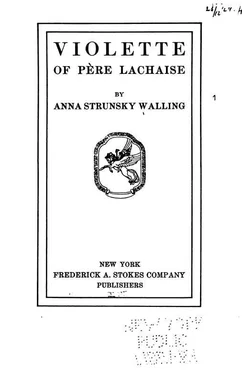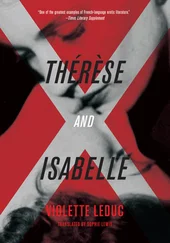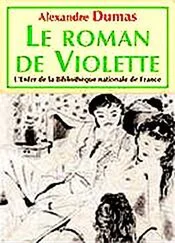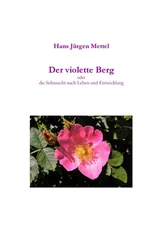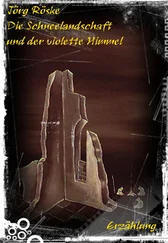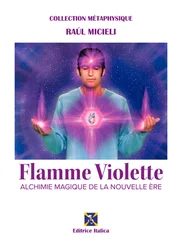Anna Strunsky - Violette of Père Lachaise
Здесь есть возможность читать онлайн «Anna Strunsky - Violette of Père Lachaise» весь текст электронной книги совершенно бесплатно (целиком полную версию без сокращений). В некоторых случаях можно слушать аудио, скачать через торрент в формате fb2 и присутствует краткое содержание. Город: New York, Год выпуска: 1916, Издательство: Frederick A. Stokes Company, Жанр: great_story, на английском языке. Описание произведения, (предисловие) а так же отзывы посетителей доступны на портале библиотеки ЛибКат.
- Название:Violette of Père Lachaise
- Автор:
- Издательство:Frederick A. Stokes Company
- Жанр:
- Год:1916
- Город:New York
- ISBN:нет данных
- Рейтинг книги:4 / 5. Голосов: 1
-
Избранное:Добавить в избранное
- Отзывы:
-
Ваша оценка:
- 80
- 1
- 2
- 3
- 4
- 5
Violette of Père Lachaise: краткое содержание, описание и аннотация
Предлагаем к чтению аннотацию, описание, краткое содержание или предисловие (зависит от того, что написал сам автор книги «Violette of Père Lachaise»). Если вы не нашли необходимую информацию о книге — напишите в комментариях, мы постараемся отыскать её.
Violette of Père Lachaise — читать онлайн бесплатно полную книгу (весь текст) целиком
Ниже представлен текст книги, разбитый по страницам. Система сохранения места последней прочитанной страницы, позволяет с удобством читать онлайн бесплатно книгу «Violette of Père Lachaise», без необходимости каждый раз заново искать на чём Вы остановились. Поставьте закладку, и сможете в любой момент перейти на страницу, на которой закончили чтение.
Интервал:
Закладка:
She gloried in the fact of her childhood, and reached out tenderly towards all the children she gathered about her. Her grandfather and she went on Simday mornings to the gardens to watch them. Their health, the colour, of their cheeks, their eyes, their laughter—that more than anything else—transported her; that, she thought later, was what led her to become infatuated with the idea of happiness. They suggested to her into what a miracle one could turn hf e if one were resolved to do sol She mingled with them, conscious that they were children together, that they were members of her generation, that they were those with whom she would have to deal later when she grew up, that they were the material out of which would be constructed her future.
She liked to read to them. In one girl she thought she saw something which made her different from the rest, another the everyday type, and she loved her none the less. In the little boy Hving two doors away she seemed to see a speaker at the meetings she and her grandfather attended. In another she thought she recognised their grocer. She could not discriminate between them. It was different with grown people—there she discriminated; some were friends, and others were strangers—but with children, there was the promise, the sincerity, the sweetness and pathos which made all of them dear.
She thought much when in the company of children, as much even as when at the theatre, or when reading her books, or when sitting with her grandfather at the meetings or walking by herself or with him in Pere Lachaise. She thought much, and they were thoughts that led her far away to new realms where laughter and merriment abounded, to lands of fair, sunlit slopes, where a brightness and a fulness as of spring prevailed.
The first verses she wrote were about children. It was on a winter day, when flowers were few in the shop, when the grandfather sat lost in himself, struggling to conceal his ailments and his sadness. Some children came to pass the late afternoon with her. They played with the baskets and wreaths, they chattered, they romped all over the place. Violette took part in their games, taught them new ones, threw herself into her part of hostess, and all the time she looked on as if she were an older sister, or as if a mother gazed on those playmates through her eyes. They broke up for home after the first star appeared, which they watched for a moment together from her window.
Then she composed an apostrophe to the Star. She invoked it to look down upon the children, and see them where they stood with their faces turned upwards to the sky. Her grandfather knew that something unusual was taking place by the scattered pages on the table, the flushed cheeks, the tumbled curls. She left her chair to place herself at the window and look at Pere Lachaise through whose trees many stars now sparkled and shone.
Older people were too harassed, too taken up with the matter of keeping alive, too hard-pressed,—but the children—about them she could weave dreams and hopes, as one wound flowers into a wreath or put rose by rose in a bouquet! Them she could fit into that future which so early had dawned on her horizon.
She sometimes forsook everjrthing and went in search of children, and abandoned herself to their play, telling them stories inspired by her reading and her theatre-going, singing songs, making up dances, inducing each of them to contribute to these performances. But her grandfather noticed that while playing with the children, she was able to get better acquainted with the elders.
The mother of one enjoyed a book and made her promise to come some night to read it before her man. Often Violette sat writing, for one or the other of their neighbours, letters seeking employment, or entrance into a hospital, or admission for some child into a school or institution. Violette was thus forced to become familiar with the needs and the sufferings of the world surrounding her, to take part in its battles, to go out daily in search of some paltry and mean benefit.
This was the school of which her grandfather approved and he let her stay long at her tasks, and sat watching her as she bent over them, and gathered up and treasured the laboured copies with which the table was strewn. It seemed natural to him that Violette should be called upon to do such things. It was right, he thought, that whatever vision of the future transfixed her soul, it should grow out of her reahties.
VI. The Waiting Years
VIOLETTE as a child was conscious of her childhood. There were no old wounds, no half-forgotten joys; there were no eras or epochs, so swiftly did events and conditions follow upon one another, in that period before the sense of time was born! Every day was a finished thing, unrelated to the day before or after.
Whenever she looked back upon it after it was past, it seemed to her that it had been something full of sunlight and warmth, something even gay. There it lay, under a golden haze, in an illimitable distance, and it seemed to her as if from the very first she had been placed at the heart of hfe, had heard voices and seen a thousand hands stretched out to her in welcome, forcing doors for her that she might walk forth towards the free spaces. She would not have exchanged her childhood for any other, since the mass of impressions for which it stood left her only with a sense of its marvels, its scope, its precious accidents, as romantic and exceptional as everything else.that characterised the morning hour of her existence.
A different aspect indeed her childhood bore to her grandfather, who could span the few years of her life as though their beginning were yesterday! To him their two lives, hers just opening, and his drawing to an end, seemed cut off and placed apart from all others. She and he were real. They were real in their isolation, their poverty, in their love for each other, in their thoughts and questions. It was the others who were insubstantial, fantastic, to whom it was not possible to relate oneself.
There had been enough sadness and fear in their lives. He could not forget the time she clamoured for bread and was held tight in his arms instead, and bathed in tears. It was when she was very little, before they had come to sell flowers in the shop in the Rue de Repos, opposite Pere Lachaise, when he was searching for work. In the evening he went to a friend who borrowed something for him from another. Violette's childhood—was it not those hours when he sat waiting in his friend's house till he return with the aid he had gone to seek? Was it not his frantic search with the money in his hand for a place where he could buy food at that late hour? Would he ever forget how he bent over her, gazed at her flushed cheeks, at her little hands and arms tossing above the covers, how he raised her and squeezed the juice of an orange between her lips, fearing to let her sleep longer without breaking her fast? Such was her childhood, and his memory of it not time itself could soften. She could forget, who was young, could look back kindly on the past, not he who was old, and had been old then.
Violette remembered her intense interest in the people that came to the shop, with their grave faces and sad manner and lowered voices, and how she watched them cross the street till they passed beyond the Gate, where they carried their offerings and their tears. She wondered what need called them there, what sorrow drove them, what hope they f omid, what they heard in the silence of that place. It was in her childhood that her heart opened itself to others, that strangers became friends, it was then she discovered that everybody was threatened in the same way, that all knew that sorrow and anguish might arrive to all, must be shared by all. That was what made everybody one, what underlay everybody's love, she thought. There was bom in her then, as she sat at the counter sorting ferns for her grandfather, as she bent over the pails in which the cut roses were kept, that sympathy for her kind which never left her. She thought she could remember through what processes her heart grew gentler and gentler, how her mind followed those she so briefly met, how she suffered their sorrow, loved them for their tenderness, and how the poetry of himaan life spoke to her and inspired her.
Читать дальшеИнтервал:
Закладка:
Похожие книги на «Violette of Père Lachaise»
Представляем Вашему вниманию похожие книги на «Violette of Père Lachaise» списком для выбора. Мы отобрали схожую по названию и смыслу литературу в надежде предоставить читателям больше вариантов отыскать новые, интересные, ещё непрочитанные произведения.
Обсуждение, отзывы о книге «Violette of Père Lachaise» и просто собственные мнения читателей. Оставьте ваши комментарии, напишите, что Вы думаете о произведении, его смысле или главных героях. Укажите что конкретно понравилось, а что нет, и почему Вы так считаете.
